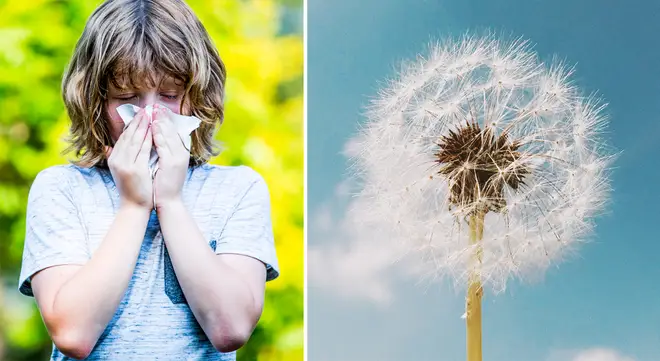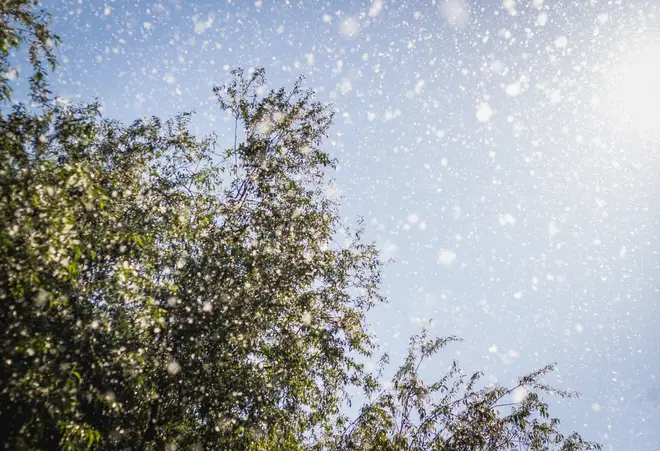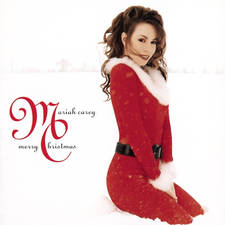Hay fever sufferers issued warning as storms trigger THUNDER FEVER and sky-high pollen count
21 June 2019, 10:55 | Updated: 21 June 2019, 10:57

Hay fever sufferers have been advised to stay inside as pollen counts sky rocket over the weekend.
The grey and wet weather is finally set to change in the next week as a long-awaited heat wave hits the UK.
But along with the hot temperatures, it’s bad news for Hay fever sufferers as this could trigger peak pollen levels.
Asthmatics and those who have breathing conditions have been warned by the Met Office to take extra care as pollen counts are forecast to rocket this weekend.
After recent torrential downpours, the upcoming hot conditions over the next few days are ideal for grass-pollen production and will create a "huge cloud of irritant particles" set to fill the air.
The high counts will reportedly stay until the end of June, with airborne allergens expert Max Wiseberg telling the Express: “The sheer volume of rain we’ve experienced followed by sunshine is likely to create a potential grass pollen crisis in the UK.
“Sunny dry days could generate huge clouds of pollen exploding into the air triggering horrendous Hay fever for the millions of Brits living with this debilitating condition.”
He added: “Thunderstorms, which are predicted next week, split the grains and make them more allergenic triggering a so-called thunder fever.”

Dr Beverley Adams-Groom, chief pollen forecaster at Worcester University, also explained that the recent wet weather has delayed grass pollen season.
Read More: UK weather: Storms, high pollen levels and 30C temperatures all forecast next week
She told Sky News: "We're right in the season now, the grasses have been ready to emit their pollen properly and fully for a week or so now. We're going to see the full peak coming up over the next week or so now.
"From now on, certainly for the next three days, we've got high to very high risk for quite a lot of the country. It's nothing exceptional, forget all this stuff about a pollen bomb, it's what we would normally expect to see."
Dr Adams-Groom added that the grass pollen season can affect up to 95% of hay fever sufferers giving symptoms of a runny nose, itchy eyes, sneezing and coughing.
Experts advise those who suffer badly to avoid grassy areas and not go outdoors at the times when pollen counts are highest - in the early morning and late afternoon.
Using an allergy barrier nasal spray can help, while large sunglasses can help stop pollen from irritating your eyes.
It’s also important to keep car windows shut and dry your washing inside rather than on the line.
This comes after the Met Office issued yellow weather warnings for Sunday and Monday in parts of England and Wales ahead of the impending heatwave.
Apparently, next week will feel very humid, as the mercury rises and sores in the hight twenties and low thirties.
It's not just the UK that will be affected by the heatwave, though. The warm weather will develop across areas of Western Europe, with countries like France, Germany and the Netherlands basking in sunshine.























